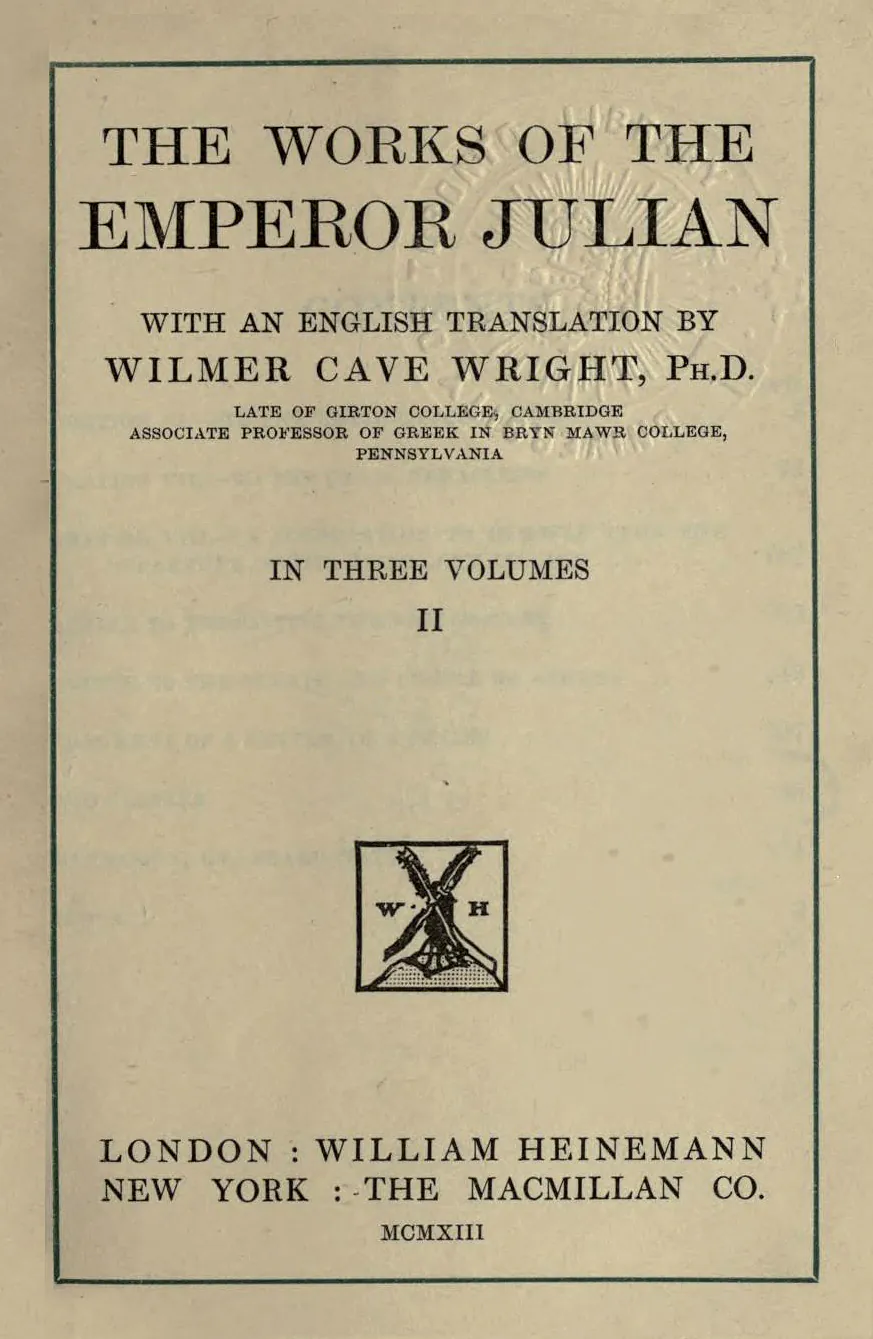[A]
Ἀνακρέοντι τῷ ποιητῇ πολλὰ ἐποιήθη μέλη χαρίεντα· τρυφᾶν γὰρ ἔλαχεν ἐκ μοιρῶν· Ἀλκαίῳ δ ̓ οὐκέτι οὐδ ̓ Ἀρχιλόχῳ τῷ Παρίῳ τὴν μοῦσαν ἔδωκεν ὁ θεὸς εἰς εὐφροσύνας καὶ ἡδονὰς τρέψαι· μοχθεῖν γὰρ ἄλλοτε ἄλλως ἀναγκαζόμενοι τῇ μουσικῇ πρὸς τοῦτο ἐχρῶντο,
[B]
κουφότερα ποιοῦντες αὑτοῖς ὅσα ὁ δαίμων ἐδίδου τῇ εἰς τοὺς ἀδικοῦντας λοιδορίᾳ. ἐμοὶ δὲ ἀπαγορεύει μὲν ὁ νόμος ἐπ ̓ ὀνόματος αἰτιᾶσθαι τοὺς ἀδικουμένους μὲν οὐδέν, εἶναι δ ̓ ἐπιχειροῦντας δυσμενεῖς, ἀφαιρεῖται δὲ τὴν ἐν τοῖς μέλεσι μουσικὴν ὁ νῦν ἐπικρατῶν ἐν τοῖς ἐλευθέροις τῆς παιδείας τρόπος. αἴσχιον γὰρ εἶναι δοκεῖ νῦν μουσικὴν ἐπιτηδεύειν, ἢ πάλαι ποτὲ ἐδόκει τὸ πλουτεῖν ἀδίκως.
[C]
οὐ μὴν ἀφέξομαι διὰ τοῦτο τῆς ἐμοὶ δυνατῆς ἐκ μουσῶν ἐπικουρίας. ἐθεασάμην τοι καὶ τοὺς ὑπὲρ τὸν Ῥῆνον βαρβάρους ἄγρια μέλη λέξει πεποιημένα παραπλησίᾳ τοῖς κρωγμοῖς τῶν τραχὺ βοώντων ὀρνόθων ᾄδοντας καὶ εὐφραινομένους ἐπὶ τοῖς μέλεσιν.
[A]
Anacreon the poet composed many delightful songs; for a luxurious life was allotted to him by the Fates. But Alcaeus and Archilochus of Paros1In the seventh century B.C. Alcaeus of Lesbos and Archilochus both suffered exile, and the latter fell in battle against Naxos. For the misfortunes of Alcaeus, cf. Horace, Odes 2. 13. the god did not permit to devote their muse to mirth and pleasure. For constrained as they were to endure toil, now of one sort, now of another, they used their poetry to relieve their toil,
[B]
and by abusing those who wronged them they lightened the burdens imposed on them by Heaven. But as for me, the law forbids me to accuse by name those who, though I have done them no wrong, try to show their hostility to me; and on the other hand the fashion of education that now prevails among the well-born deprives me of the use of the music that consists in song. For in these days men think it more degrading to study music than once in the past they thought it to be rich by dishonest means.
[C]
Nevertheless I will not on that account renounce the aid that it is in my power to win from the Muses. Indeed I have observed that even the barbarians across the Rhine sing savage songs composed in language not unlike the croaking of harsh-voiced birds, and that they delight in such songs.



